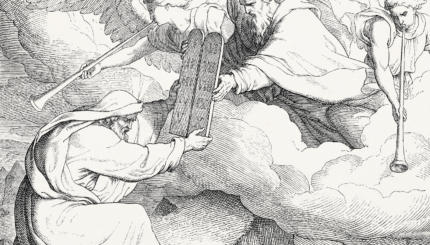Two ideas about leadership jumped out at me recently when I was reading the first chapter of the Book of Joshua. The book begins:
1 Now it came to pass after the death of Moses the servant of the LORD, that the LORD spoke unto Joshua the son of Nun, Moses’ minister, saying:
2 ‘Moses My servant is dead; now therefore arise, go over this Jordan, thou, and all this people, unto the land which I do give to them, even to the children of Israel.
In both verse 1 and 2, God refers to Moses as his “servant”; Joshua, for his part, is referred to as misharet Moshe, Moses’ minister. It’s notable that in this leadership transition from Moses to Joshua, the key figures are described in their relationships of subservience and, more importantly, duty and service.
Moses may have been the greatest of Israelite leaders, but ultimately, he is defined as a servant of God. Joshua is also put in his place, acknowledged as one who serves.
In contrast to this message of subservience comes the primary behavioral and attitudinal mandate given to Joshua. No less than three times (in verses 6,7,and 9), God commands Joshua: Chazak v’Amatz – “Be strong and of good courage.”
Interestingly, the Israelites who Joshua addresses at the end of the chapter give their leader the same message. After pledging their allegiance to Joshua, they say:
18 Whosoever he be that shall rebel against thy commandment, and shall not hearken unto thy words in all that thou commandest him, he shall be put to death; only be strong and of good courage (chazak v’amatz).
It’s striking that both the bestower of leadership (God) and those who will be led (the Israelites) want the same thing from Joshua — strength.
But power that is manifested in strength can be dangerous. Which is where the beginning of the chapter might kick in.
Taken as a whole, we might say that the first chapter of Joshua provides us with a model approach to leadership: (1) Leadership must be rooted in a sense of service, duty, and responsibility; (2) Once this has been established, fortitude and strength is encouraged and necessary.

